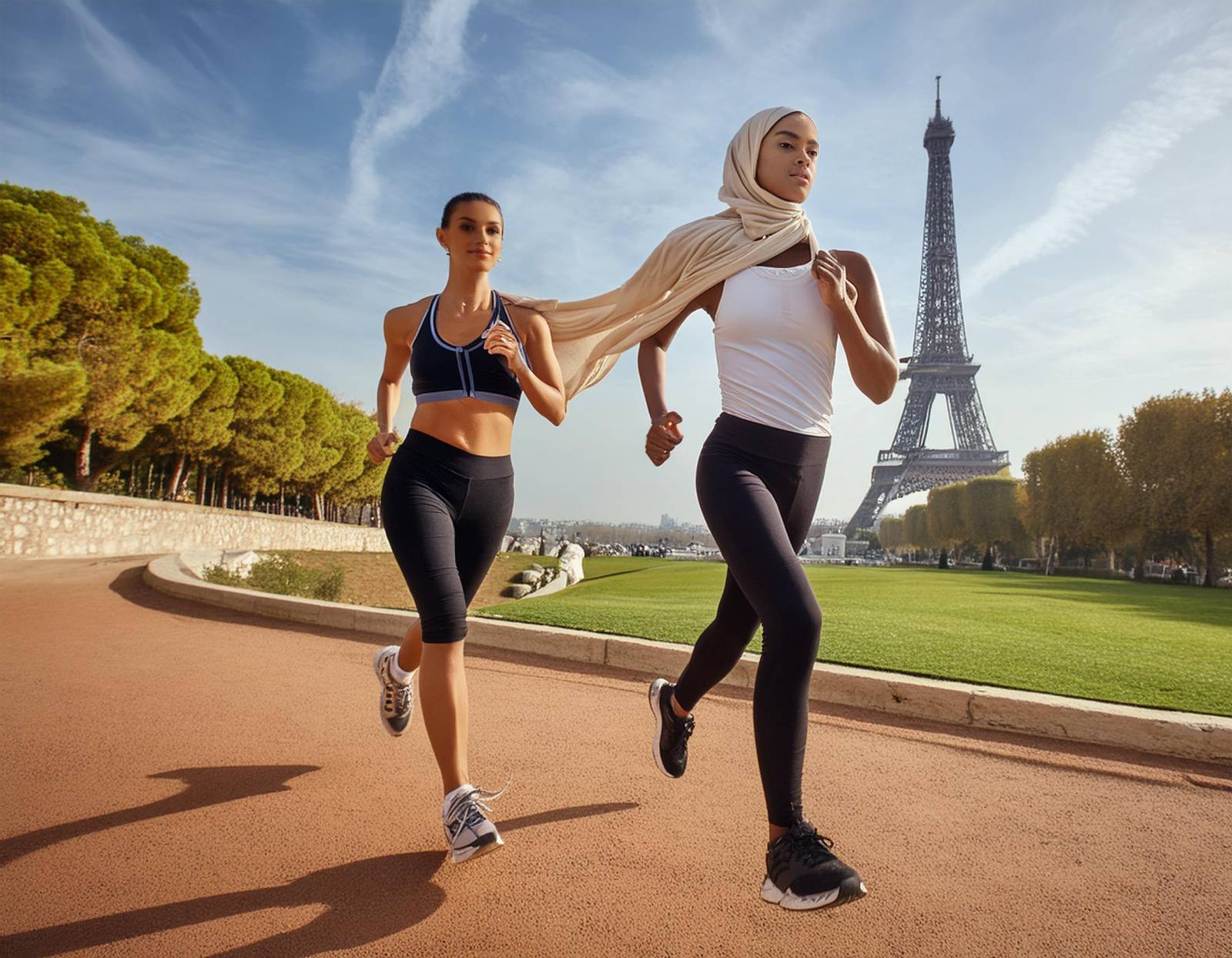The connection, between the Olympic Games and religion spans from Greece to the Paris 2024 Games. Originating in 776 BC in Olympia, Greece, the Olympics were initially an event dedicated to Zeus, the king of gods. Beyond contests the Games were an integral part of a broader religious festival involving sacrifices and rituals. Competitors from city states engaged in events like running, jumping, wrestling and chariot racing while honoring the deities.
In belief there was a presence at the Games with tales suggesting that even Zeus grappled with his father Cronus for supremacy over the world. The tradition of lighting the flame began at a ceremony in Olympias Temple of Hera where a priestess used a mirror to ignite it with sunlight – a practice that continues as a prominent symbol, in today’s modern Games.
As Christianity expanded across the Roman Empire, the ancient Olympic Games faced suppression due, to being viewed as a pagan celebration. Nevertheless the essence of the Games endured, leading to the inception of the Olympics in 1896 spearheaded by Pierre de Coubertin, a French educator and historian.
Although todays Olympics are considered an affair religion continues to hold significance within the event. Many athletes draw strength and inspiration from their faith often displaying symbols and gestures on the podium when receiving medals. For instance certain athletes may cross themselves. Look up to the sky in gratitude or take a moment for prayer upon achieving victory.
A poignant illustration of influence in contemporary Olympics is illustrated through Eric Liddell’s narrative. Liddell, a hailing from Scotland participated in the 1924 Paris Games. Due to his convictions conflicting with Sunday races. His preferred event being the 100 meter dash. He chose instead to compete in and triumph, at the 400 meter race clinching gold and setting a world record. His remarkable journey was later immortalized on screen with “Chariots of Fire ” a film that won an Academy Award.
In the context of religion and the Olympics there is an instance involving Muhammad Ali, who achieved gold in boxing at the 1960 Games, in Rome. Then known as Cassius Clay Ali utilized his success to voice out against racism and advocate for his Islamic beliefs. His act of discarding his gold medal into the Ohio River after being denied service at a whites establishment became iconic. Subsequently he emerged as a symbol of the civil rights movement and a global figure representing Islam.
In times religion has maintained its significance at the Olympics. For instance during the 2016 Games in Rio de Janeiro the inaugural Olympic refugee team featured athletes from countries like South Sudan and Syria that were torn by war. These athletes found solace and resilience through their faith amidst challenges.
Looking ahead to the 2024 Games in Paris religion is poised to again take center stage. France with its history of secularism has been navigating issues surrounding freedom and identity. Criticism has been directed towards France for its prohibition on symbols in spaces, viewed by some, as encroaching on individual liberties.
Despite the existing tensions the Olympic Games hold the potential to bring people together uniting athletes and spectators, from backgrounds and regions. The Olympic Charter, which sets out the values of the Games underscores the significance of “advancing a society focused on upholding human dignity” and “embracing universal ethical principles.”
One way in which the Olympics can uphold these ideals is by serving as a platform for interfaith dialogue and mutual understanding. The Olympic Village, where athletes from nations and cultures reside and engage with one another during the Games exemplifies this notion. Many athletes seize this opportunity to gain insights into each other’s beliefs and customs nurturing a spirit of respect and admiration.
Furthermore religion can be integrated into the Olympics through practices and rituals. Some athletes may draw comfort and strength, from prayer or meditation while others may partake in observances or congregations. The Olympic Movement acknowledges the significance of these practices. Has established protocols for offering services at the Games.
Looking ahead to the 2024 Paris Games indications suggest that religion will play a role.
The city boasts religious landmarks, such, as the famous Notre Dame Cathedral, which suffered significant damage in a fire back in 2019 but is slated to partially reopen in time for the Olympics.
Moreover the Paris Organizing Committee has affirmed its commitment to promoting diversity and inclusivity during the Games including providing accommodations for athletes of faiths. This may involve setting up designated prayer areas offering halal and kosher food choices and implementing initiatives to ensure all athletes feel embraced and respected.
As we gear up for the 2024 Olympics it’s evident that religion will continue to hold a place in the Games narrative—just as it has done throughout history. Whether through acts of faith interfaith dialogues or spiritual observances religion possesses the ability to motivate, unify and elevate both athletes and spectators alike.
Simultaneously the Olympics have the potential to transcend divides and foster a shared sense of humanity. By uniting individuals, from backgrounds and beliefs these Games can cultivate a spirit of camaraderie, solidarity and peace that extends well beyond the confines of sports.
As Pierre de Coubertin, the visionary, behind the Olympics once said; “Winning isn’t everything in the Olympic Games; what truly matters is participating. Similarly lifes essence lies not in victory but in the challenges faced; it’s not about conquering but about fighting ” Looking ahead to the 2024 Paris Games and beyond lets hold onto these words and embody the core Olympic principles of striving for excellence fostering friendship and showing respect – both on and off the sports field. By doing we can pay tribute to the past and spiritual significance of the Olympics while also paving a path towards a brighter more inclusive future, for everyone involved.





